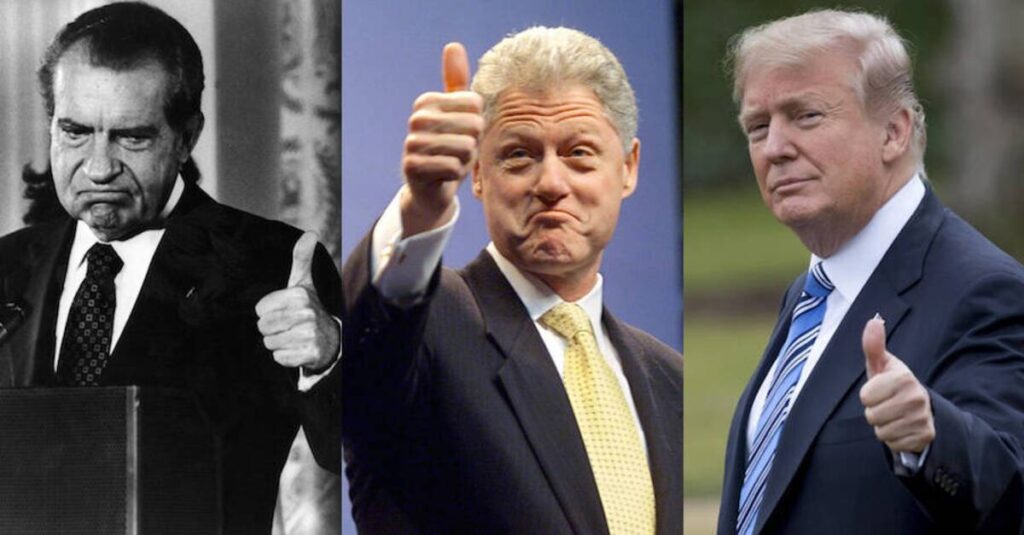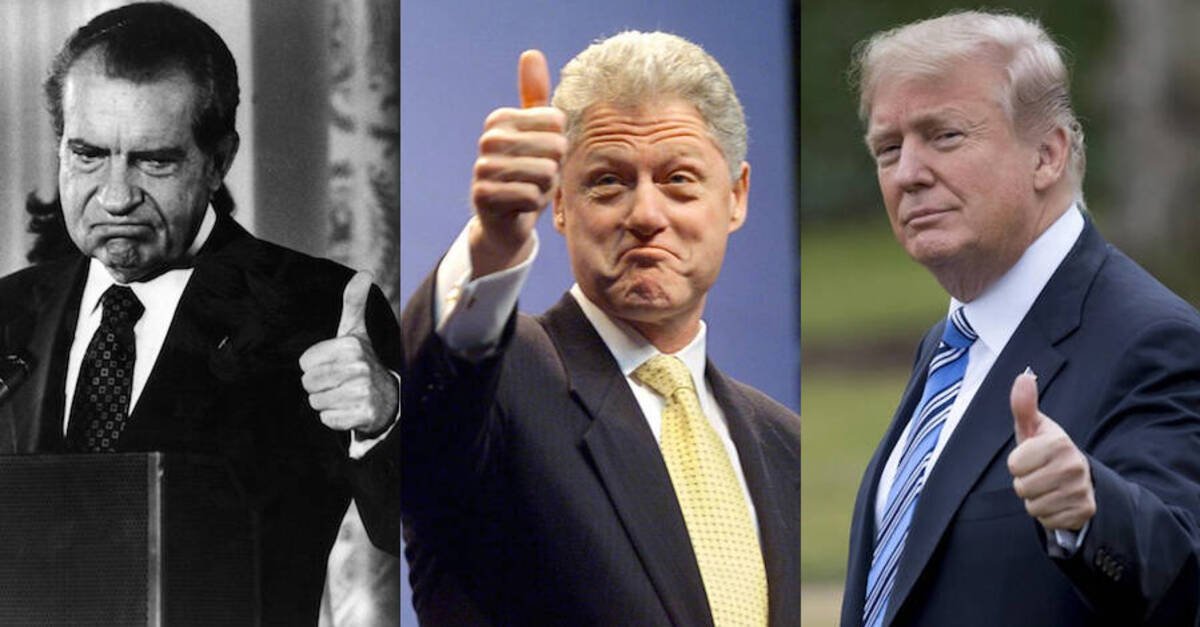 On Monday, November 25th, federal judge Ketanji Brown Jackson handed down her ruling on the attempt by the Trump administration to block former White House legal counsel Don McGahn from testifying before the House Judiciary Committee. She ruled McGahn was obliged to comply with congressional subpoenas and shot down the idea put forth by the White House Legal team and the Department of Justice Office that current and former senior White House aides would be totally immune from congressional questioning; declaring that “Presidents are not Kings.”
On Monday, November 25th, federal judge Ketanji Brown Jackson handed down her ruling on the attempt by the Trump administration to block former White House legal counsel Don McGahn from testifying before the House Judiciary Committee. She ruled McGahn was obliged to comply with congressional subpoenas and shot down the idea put forth by the White House Legal team and the Department of Justice Office that current and former senior White House aides would be totally immune from congressional questioning; declaring that “Presidents are not Kings.”
This comes amid extreme tension between the branches of government in the US, as the impeachment inquiry into President Trump’s dealings with Ukraine regarding the exchange of crucial military aid for a public declaration by Ukraine prosecutors of an investigation into Hunter Biden advances. As the inquiry progresses, the questions of judicial precedent, constitutional interpretation – as well as the precedents set by previous impeachment procedures – are central.
The Trump administration’s strategy has consisted of systematically blocking crucial aides (such as acting chief of staff Mick Mulvaney and secretary of state Mike Pompeo) from testifying before Congress on the basis that aides to the President are constitutionally guaranteed immunity from complying with subpoenas. This is a legal opinion that is not unique to the Trump administration, as many previous governments from both parties have adopted this position. However, there is no definitive court precedent on this matter. Even though this was taken up by Judge Bates in 2008, when he ruled that former White House counsel Harriet Miers had the obligation to attend a hearing for which she was subpoenaed, it did not result in a precedent. This was because the dispute was resolved before an appeals court rendered a judgment, making Judge Bate’s previous decision inapplicable to future cases dealing with the issue.
Resistance to an impeachment inquiry on the part of an administration is not novel either, as both Nixon and Clinton were reticent to cooperate. Nixon initially declined to comply with subpoenas requiring the tape recordings of White House conversations were shared, and eventually went as far as to fire uncooperative officials in the now infamous Saturday Night Massacre. Bill Clinton was also not eager to cooperate and implicitly questioned the legitimacy of the inquiry.
However, it can be argued that even though this is not new, the extent to which the Trump administration has taken its legal interpretation and non-cooperation is unprecedented. This is partly because the discourse held by the White House surrounding the impeachment inquiry has become one of delegitimization and ridicule. This puts the concept of checks and balances at risk, as one of the branches refuses to recognize the other. This was the case when Rudy Giuliani, one of the President’s lawyers, described the House Judiciary Committee as “the McCarthy committee on steroids” which has “no sensitivity to civil rights,” and the White House declaring the impeachment inquiry an effort to subdue the results of the 2016 presidential election. This is mostly based around the claim by which the impeachment inquiry has not followed “due process.”
It is true that Speaker of the House Nancy Pelosi has not followed informal norms used by her predecessors during the Nixon and Clinton impeachment hearings, namely the fact that the inquiry into Trump was not approved by a full house vote like previous ones. However, there is no judicial precedent on this and the Constitution only gives “the sole power of impeachment” to the House, without any specification on process and rules, providing Pelosi no constitutional obligation to follow the path of her predecessors. And even though Clinton questioned the legitimacy of the inquiry, there was never an official statement deeming it unconstitutional. On top of this, even though withholding access to information and documents was something we saw under Nixon, he never asserted executive privilege by withholding a witness from testifying.
The fact that the Trump administration is challenging the obligation of its aides to testify before Congress in a court of law is not, in itself, dangerous to the integrity of the Constitution, as the ruling of the courts is still ensured. However, it is worth noting that the withholding of these testimonies forces a legal procedure to be undertaken, delaying the whole process. With the election approaching and a need for the American public to remain engaged in the trial, Democrats may be forced to proceed without all the information they could have obtained. Therefore, the drafting of articles of impeachment runs the risk of being undermined by their incomplete nature.
So even though Trump’s legal strategy seems weak in the sense that courts will overwhelmingly strike down this view of total protection over presidential aides, its strength lies in the fact that it could succeed in withholding information from lawmakers long enough that they are forced to proceed.
Sources, references, etc;
Allyn, Bobby. “Judge Pushes Back On Trump Lawyers Trying To Block Possible Impeachment Witnesses”, National Public Radio, 31/10/2019. accessed on 29/11/2019 at https://www.npr.org/2019/10/31/775266947/judge-pushes-back-on-trump-lawyers-trying-to-block-possible-impeachment-witness
Savage, Charlie. “Donald McGahn Must Testify to Congress, Judge Rules; Administration Will Appeal”, New York Times, 25/11/2019, accessed on 29/11/2019 at https://www.nytimes.com/2019/11/25/us/politics/mcgahn-testimony-ruling.html
Van Wagtendok, Anya. “Trump’s latest attempt to block impeachment inquiry testimonies faces a key court battle”. Vox. 26/10/2019. accessed on 29/11/2019 at https://www.vox.com/policy-and-politics/2019/10/26/20933547/trump-impeachment-inquiry-testimonies-constitutional-immunity
Fandos, Nicholas; Baker, Peter; Schmidt, Michael S: Haberman, Maggie. “White House declares war on impeachment inquiry, claiming effort to undo Trump’s election”, The New York Times. 08/10/2019, accessed on 29/11/2019 at https://www.nytimes.com/2019/10/08/us/politics/sondland-trump-ukraine-impeach.html
Marcus, Ruth. “A federal judge gives the Trump administration a lesson in rule of law”. The Washington Post, 26/11/2019, accessed on 29/11/2019 at https://www.washingtonpost.com/opinions/2019/11/26/federal-judge-gives-trump-administration-lesson-rule-law/
Vesoulis, Abby. “Richard Nixon and Bill Clinton also pushed back on impeachment investigations. But Trump is taking it a step further”. Time, 19/11/2019. accessed on 29/11/2019 at https://time.com/5732352/trump-impeachment-clinton-nixon/
Gal, Shayanne and Pasley, James. “Impeachment crushed Nixon’s approval ratings, but Clinton emerged unscathed. Here’s how Trump could survive, too.”, Business insider, 26/11/2019. Accessed on 29/11/2019 at https://www.businessinsider.com/impeachment-approval-ratings-trump-clinton-nixon-compared?IR=T
Naylor, Brian. “Fact check: Is the Trump impeachment process different from Nixon and Clinton?”, National Public Radio, 03/11/2019. accessed on 29/11/2019 at https://www.npr.org/2019/11/03/775152421/fact-check-is-the-trump-impeachment-process-different-from-nixon-and-clinton
Other posts that may interest you:
- Carbon dioxide removal – hit or miss?
- Local Victories for Turkish Opposition — A Sign of Hope?
- Are France and Japan a Mismatch Made in Heaven?
- A Reflection on Dark Tourism
- Cadavre Exquis : Goodbye stranger
Discover more from The Sundial Press
Subscribe to get the latest posts sent to your email.





